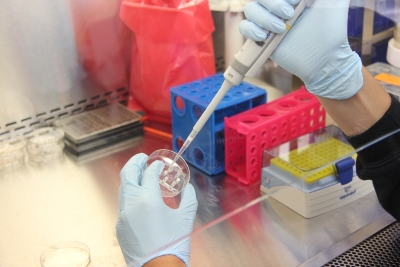The next phase of growth in pharma depends on the industry-oriented workforce, risk investment, academic revamp, and creation of R&D hubs, say experts .

The funding ecosystem for research and development in pharma is missing in India, says Pankaj Patel, Chairman, Cadila Healthcare who calls for studying China and Japan’s models in this regard. “The issue with Venture Capitalists is that they seek maximum returns within a short period of time. Therefore, we need to find ways to incentivise research, and create more academia-industry collaborations,” opines Patel who was speaking virtually at the session ‘Ecosystem for R&D and Innovation: Moving up the value chain’ at the 6th annual conference, India Pharma 2021 being organized by Invest India, FICCI and Department of Pharmaceuticals.
Emphasizing on focused research policy for an innovative ecosystem, Patel mentions the need for attention towards public health research and making research institutes responsible for time-bound results. He stresses the need for replicating the model followed by American and European Universities where scientists can register companies on campus. “High time we allow the researchers' freedom to innovate and create a win-win situation for all. There is a need for a National Pharma Council that can have different labs to do research with representation from the industry as well.”
We are self-funded and driven internally, says Glen Saldanha, CMD, Glenmark Pharmaceuticals who expresses disappointment over the discontinuation of incentives. “As a country, we have to be more serious about innovation. The intent of the government to fund the innovation is important. It is great to have Venture capitalists but they are indifferent as they go only for the higher and best innovation. We must learn from China that has done a lot of work to promote innovation and make sure the companies are able to sell their products. To drive significant transformation, India has to stop price control measures as the regulatory bodies instead of being facilitators are proving counter-intuitive. The ecosystem has to undergo transition and for that industry and government have to work together to make India a global innovation hub.”
Listing out his suggestions, Mahesh Bhalgat, Chief Operating Officer, Syngene stresses the need for incentivizing the talent. “It is good that we are getting out of our comfort zones. First of all, what we need now is a risk-sharing investment framework. Second is skilled human resources and talent. The third is an opportunity for data science. As we are poor in the implementation of data sciences, we need to bring all the components of IT, academic, and other enablers in one place. A lot of innovation happened at the end of regulatory authorities too during the pandemic and that helped the industry to give vaccines. That needs to be the norm. The government needs to create an R&D barometer that will put India on the global R&D map. Funding from government agencies has to increase and the ways have to be explored for bringing industry and academia together to build an ecosystem through leveraging expertise.”
Providing an academic perspective, Prof Arvind K Bansal, Professor, and Head,-Pharmaceuticals, NIPER-Mohali says, “Industry ready students and for that to happen they need to be taught industrial driven stuff at their colleges and universities. However, neither have the professors worked in the industry nor have experience. In such a scenario, there is a need to involve the industry members as guest faculties.” Dr. Bansal, calls for the increased interaction between industry and academia.
Govt working to address loopholes: top officials
Ensuring seamless regulatory setup is the main focus, says Dr. K Vijayraghvan, Principal Scientific Advisor, Government of India who is optimistic about the change. He adds, “Investment is critical but whatever government invests, it wouldn't be enough. Therefore, government’s partnership with banks can go very far in addressing the needs of the industry.”
Expressing her confidence in India’s growing biotech strength, Renu Swarup, Secretary, Department of Biotechnology believes that the ecosystem is far more robust now and that there has been a greater convergence among various stakeholders. “We are working on infrastructure, regulations, and policies. Now we are aware of how we can take it forward as a group. There is the confidence that we can deliver without pandemic too,” says Dr. Swarup who stresses the need for focus on increasing sustainability and risk investment. “ There are 5,000 startups in India today. We have set up many bio-clusters across India and now moving forward URJIT Clusters are being set up to rope in academia. The Startup India has to ensure Make in India,” she adds.
Listing out the steps taken to streamline the regulatory system and strengthen the academic ecosystem, Rajneesh Tingal, Joint Secretary, Department of Pharmaceuticals says, “During the pandemic, we created an interdepartmental committee that did a wonderful job. For enabling the regulatory ecosystem, Invest India and NITI Aayog will soon release the draft recommendations for public consultation. We have seven NIPERS that are conducting research. Of course, it has taken time but we have tried to provide support in terms of infrastructure and permanent faculty members.”
Register Now to Attend NextGen Chemicals & Petrochemicals Summit 2024, 11-12 July 2024, Mumbai

Subscribe To Our Newsletter & Stay Updated